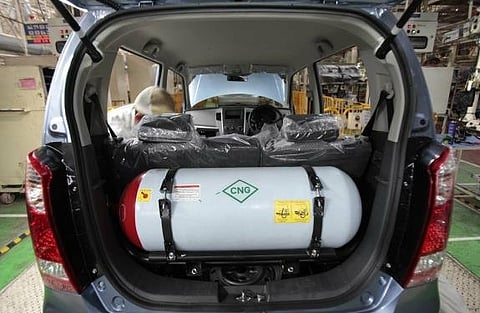

As petrol prices continue to rise in Nigeria, many drivers are turning to Compressed Natural Gas (CNG) as a cost-effective alternative for fueling their vehicles. CNG-powered cars present an appealing option for those looking to reduce fuel expenses while also benefiting from a greener energy source.
Despite their environmental advantages and lower emissions compared to petrol or diesel vehicles, CNG cars have faced skepticism. This article addresses some of the common misconceptions surrounding CNG vehicles:
Myth 1: CNG Cars Are Unsafe
Contrary to popular belief, CNG is actually safer than petrol. With an ignition temperature of 700°C, significantly higher than petrol's 455°C, CNG reduces the risk of fire. Additionally, CNG cylinders undergo rigorous safety testing, making them more robust than traditional petrol tanks.
Myth 2: CNG Cars are Unreliable
CNG vehicles are just as durable as their petrol counterparts. The lighter and non-corrosive nature of CNG contributes to longer engine life and lower repair costs. Moreover, these vehicles require less frequent oil changes, offering convenience for busy drivers.
Myth 3: CNG is Expensive
While the initial cost of CNG vehicles may be higher, the fuel itself is cheaper than petrol, leading to significant long-term savings for owners.
Myth 4: CNG is as Harmful to the Environment as Other Fossil Fuels
CNG is actually a more environmentally friendly option, emitting 25-30% less carbon dioxide (CO2) than gasoline and diesel. It also produces lower levels of nitrogen oxides (NOx) and particulate matter (PM), contributing to improved air quality and public health.
Myth 5: CNG Cannot be Used for Long-distance Travel
Although CNG vehicles generally have a shorter range due to lower energy density, many models come equipped with larger tanks or dual-fuel systems that allow for extended travel.
